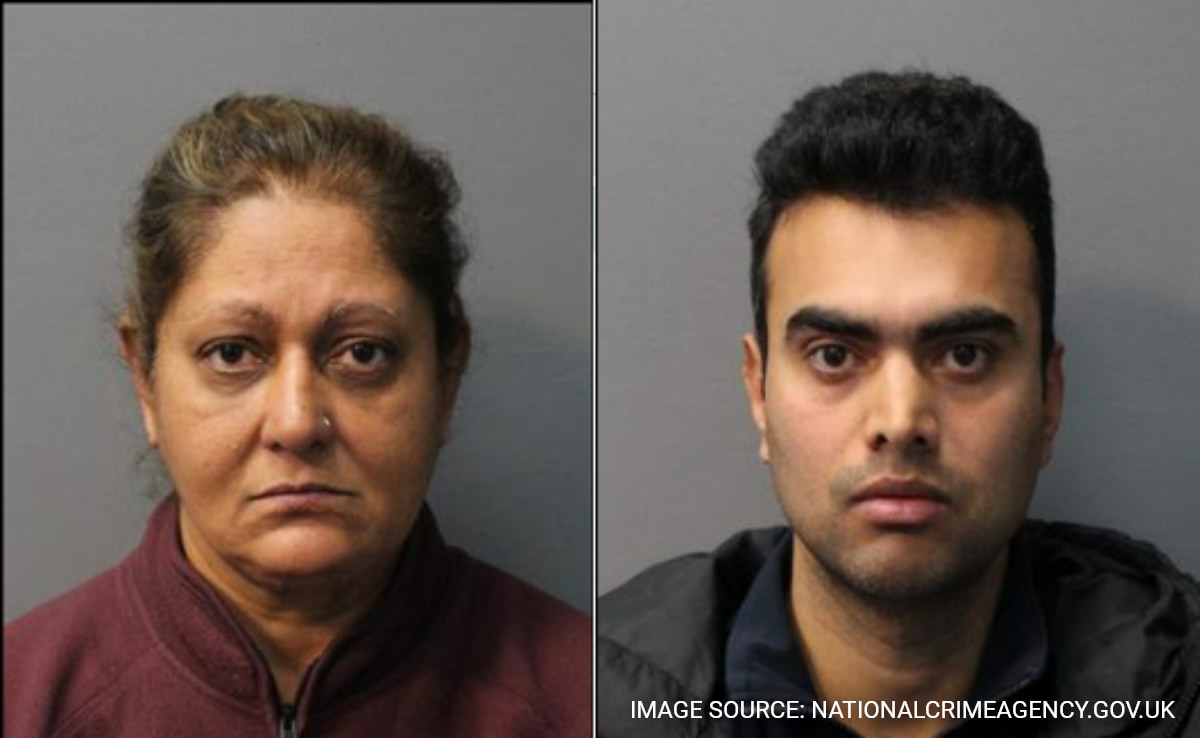
India’s extradition request was denied in 2019.
New Delhi:
In a story chillingly similar to the acclaimed TV series ‘Ozark’, an Indian-origin couple living in the UK has been sentenced to 33 years in prison each for a crime that transcends international borders. Arti Dhir, 59, and Kavaljitsinh Raijada, 35, from West London’s Ealing, are at the centre of a multi-million-pound drug trafficking operation that spanned continents, mirroring the intricate webs of deceit portrayed in the popular crime drama.
The National Crime Agency (NCA) unraveled the elaborate scheme when the Australian Border Force intercepted over half a tonne of cocaine, valued at a staggering 57 million pounds, which is over Rs 600 crore, upon its arrival in Sydney in May 2021. The drug-laden cargo, cleverly concealed within metal toolboxes, was traced back to the seemingly ordinary couple who had established a front company named Viefly Freight Services to facilitate their drugs smuggling network.
The Cocaine Caper
A court heard that the couple’s front company had dispatched the narcotics via a commercial flight from the UK. When authorities cracked open the metal toolboxes, they discovered a staggering 514 kilograms of cocaine. The street value of this illicit cargo in Australia, where drug prices soar well above those in the UK, was estimated to be 57 million pounds.
Dhir and Raijada vehemently denied the charges of exporting cocaine to Australia and money laundering. However, a jury at Southwark Crown Court convicted them on 12 counts of exportation and 18 counts of money laundering.
Web Of Deceit Unraveled
The NCA connected the dots leading to the convicted couple. Raijada’s fingerprints on the plastic wrappings of the toolboxes and receipts found at their residence were key evidence linking them to the crime. The agency revealed that the couple had orchestrated 37 consignments to Australia since June 2019, with 22 acting as decoys and 15 containing cocaine.
Both Dhir and Raijada had prior employment at a Heathrow flight services company, exploiting their insider knowledge of airport freight procedures to cloak their illicit activities. The intricate scheme, however, began to unravel when the couple was arrested at their Hanwell residence on June 21, 2021, leading to the discovery of substantial amounts of cash and gold-plated silver bars.
Money Trail And A Failsafe
Investigations in February last year exposed the extent of the couple’s hidden wealth. NCA officers uncovered almost 3 million pounds in cash concealed in boxes and suitcases at a storage unit in West London.
Financial inquiries revealed that despite declaring meager profits, the couple had purchased a flat in Ealing for 800,000 pounds (approx. Rs 8.5 crore) and a Land Rover for 62,000 pounds. Their cash deposits of nearly 740,000 pounds into 22 different bank accounts since 2019 raised suspicions of extensive money laundering.
“Arti Dhir and Kavaljitsinh Raijada used their insider knowledge of the air freight industry to traffic cocaine worth tens of millions of pounds from the UK to Australia, where they knew they could maximise their revenue,” Piers Phillips, NCA Senior Investigating Officer, said as quoted by news agency PTI.
Murder Allegations And Legal Battle
The couple faced extradition sought by India on charges of murdering their adopted son, Gopal Sejani, in Gujarat. The 11-year-old’s tragic fate unfolded in February 2017, with Indian police alleging a sinister plot involving adoption, insurance, and a staged kidnapping for an insurance payout.
The accused, who traveled to Gujarat in 2015 to adopt Gopal, promised the young boy a better life in London. However, Gopal was abducted, stabbed, and left by a roadside on February 8, 2017.
The couple reportedly placed an advertisement in a local newspaper, enticing prospective parents with the promise of bringing an adopted child to live in London. Gopal, a farm boy living with his older sister and her husband, became the target of their plan. Indian police alleged that Dhir and Raijada had ulterior motives beyond providing a home for Gopal.
India’s extradition request was denied in 2019, followed by an unsuccessful appeal in the High Court in London in 2020.




